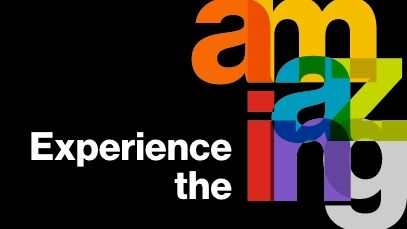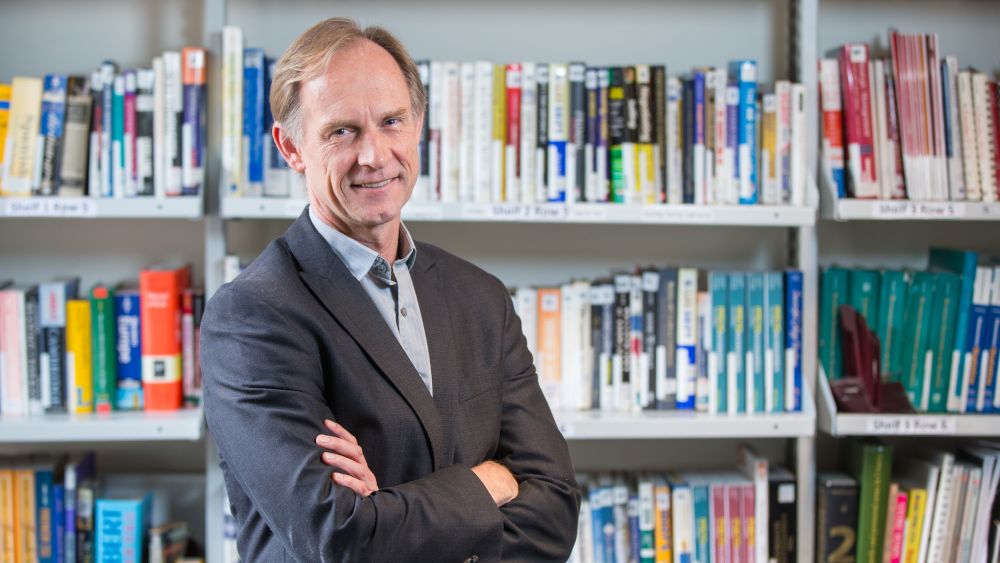Interview with prof. Kevin Walker: Acquiring base-level transferable knowledge and skill sets to tackle turbulence in service-based industries
Interview with prof. Kevin Walker: Acquiring base-level transferable knowledge and skill sets to tackle turbulence in service-based industries
April 28, 2020
With a bachelor's degree in Electrical Engineering from Stanford University and an MBA degree in finance from the University of California at Berkeley, prof. Kevin Walker came with his wife and family to Dubrovnik in 2005 so as to be near his wife's family. He joined the RIT Croatia family in 2008, teaching at the Dubrovnik campus. With a background in financial markets and equity options trading, and co-founder of a trading firm, he teaches a variety of courses involving accounting, entrepreneurship, and marketing and is currently holding a position of Area Head for the Hospitality and Tourism Management program. But the course that his students seem to remember and enjoy the most is the Public Speaking course that Dubrovnik campus students take in their freshman year. We wanted to touch base with him and hear his thoughts on the current situation.
1. Can you briefly describe how did RIT Croatia transition to online courses due to unexpected situation caused by COVID-19? What do professors do to enhance students experience and contribute to HTM students getting the maximum out of current situation?
RIT Croatia, as a result of its long-standing and heavy use of its Learning Management System, myCourses, was well prepared to meet the challenge of transitioning all of its courses to a remote delivery format, to online delivery. A mainstay of the RIT pedagogy, embraced by faculty members, involves communicating and discussing with students online, sharing assignments and course materials online and providing assessment and feedback online. Switching to a 100% online environment certainly had its challenges, but the RIT Croatia faculty was uniquely prepared, as a group, to meet this challenge. Professors now, for example, incorporate a variety of techniques to engage students and provide them with the opportunity to maintain pace in courses, including, but not limited to: creating taped lectures, narrating PowerPoints, forming and encouraging online discussions where students can share and argue points of view, delivering synchronous or live lectures (via the Internet), arranging online / tele-conferencing office hours, and so on. The over-whelming response from students has been positive and supportive.
2. What skills do you think students should develop to be able to manage changes in their future positions in the service based industries?
It is too early yet, perhaps, to definitively state what significant changes await hospitality and other service-based industries. But one thing that is certainly clear is that turbulence in these industries will be part of the future; change is on the horizon. How best, then, to prepare oneself for change? One approach, an approach provided by an RIT Croatia education, involves acquiring base-level transferrable knowledge and skill sets; overall, a tool-kit that can be utilized in different environments and situations. This tool-kit includes, among others skills, critical thinking, emotional intelligence, and hard skills and soft skills. Having this broad-based firm foundation upon which they can draw upon to address a variety of issues, RIT Croatia students are well positioned to face what the future holds.
3. What can HTM students learn from game changing crisis such as COVID-19? Can you name some examples from current courses offered at the program that are actually dealing with crisis management?
It has been said that a crisis is a terrible thing to waste. Applied to education, this means that a number of learning opportunities emerge from our current environment. At RIT Croatia, HTM students are directly exposed to risk and crisis management in a course dedicated to just that, International Risk Assessment and Law. Additionally, professors challenge students, in the context of each class, for example, International Destination Management, to identify ways in which hospitality and service-based industries will be impacted, designing projects and assignments that prompt students to envision how hospitality and tourism might evolve in a post-Coronavirus world.
4. In your opinion, why is it important for future leaders of hospitality and tourism sector to learn about crisis management and the importance of being proactive when it comes to dealing with changes?
The relentless march of tourism as a global industry has been evident for some time. Factors such as (but not limited to) globalization and people's innate desire to travel have helped fuel the ever-growing travel related numbers. With greater levels of travel come greater levels of opportunity, including increased opportunities for disasters. Hospitality and tourism professionals need to be prepared. Some risks are understood and can be planned for (for example, fires), but other risks are difficult to foresee and plan for (for example, today's pandemic). For these risks, the unforeseeable ones, being able to address them directly and in real-time is imperative; this pandemic has taught us that. Our hospitality leaders no longer have a responsibility to their firms and guests, but to the larger community as well.
5. From a professor/entrepreneur point of view what is a potential long-term impact of the crisis caused by COVID-19 on Croatian and global tourism?
The current Coronavirus pandemic has the propensity to completely disrupt hospitality. Many of the underlying assumptions associated with hospitality and tourism will be challenged. Existing business models, particularly those dependent on volume (or number of guests), will be severely questioned. Gone are the days, for example, when restaurant guests are practically sitting on top of each other. How might hospitality providers that cater to crowds of guests respond to this situation? Today's hospitality and tourism providers will need to adjust their offers and business models, pivoting in new directions. Those that do not run the risk of becoming obsolete as entrepreneurs will see this new environment as an opportunity to introduce new concepts.
And it is also possible, of course, that this pandemic will create new industries, industries whose products and services allow for gatherings of larger groups or high volume usage of tourism facilities, such as hotel rooms.
6. How do you prepare to ensure successful return to "open to business" practices mode at RIT Croatia?
We will most definitely take all necessary measures to ensure the most effective return to "Open to business" mode. But bear in mind that "Open for business" in the education field might have a new meaning in that "open for business" might mean that class are being held, but not necessarily in person. A debate has emerged as to how this pandemic will affect education: will it spur an increased acceptance of remote (online) instruction or not? RIT Croatia is and will continue to vigorously examine this matter.
7. What would be your message to all students who are contemplating to pursue their further education and careers in tourism and hospitality?
If we accept that change is becoming the new normal or at least that industries will be experiencing substantial changes in the near-term, then one should become prepared to think, work and act in such an uncertain environment. Being able to analyze a situation in a certain context and form an effective response is critical in these times. It is not enough to simply learn, but one needs to learn how to utilize that knowledge. And this is where an education with an applied knowledge and experiential learning focus can prepare students for their careers. At its core, an RIT Croatia education stresses application of learning, of doing.
Recommended News
-
July 18, 2024
-
July 17, 2024
-
July 16, 2024
-
July 11, 2024











